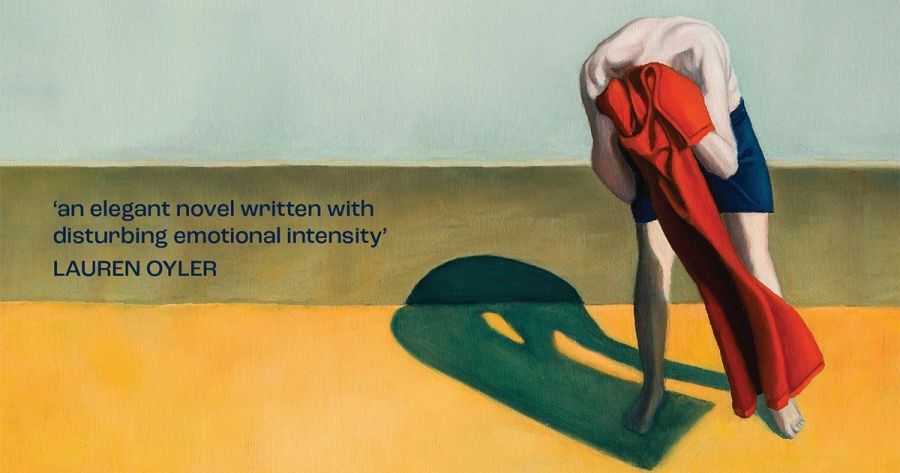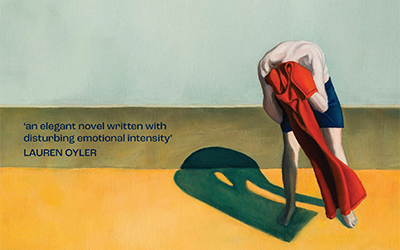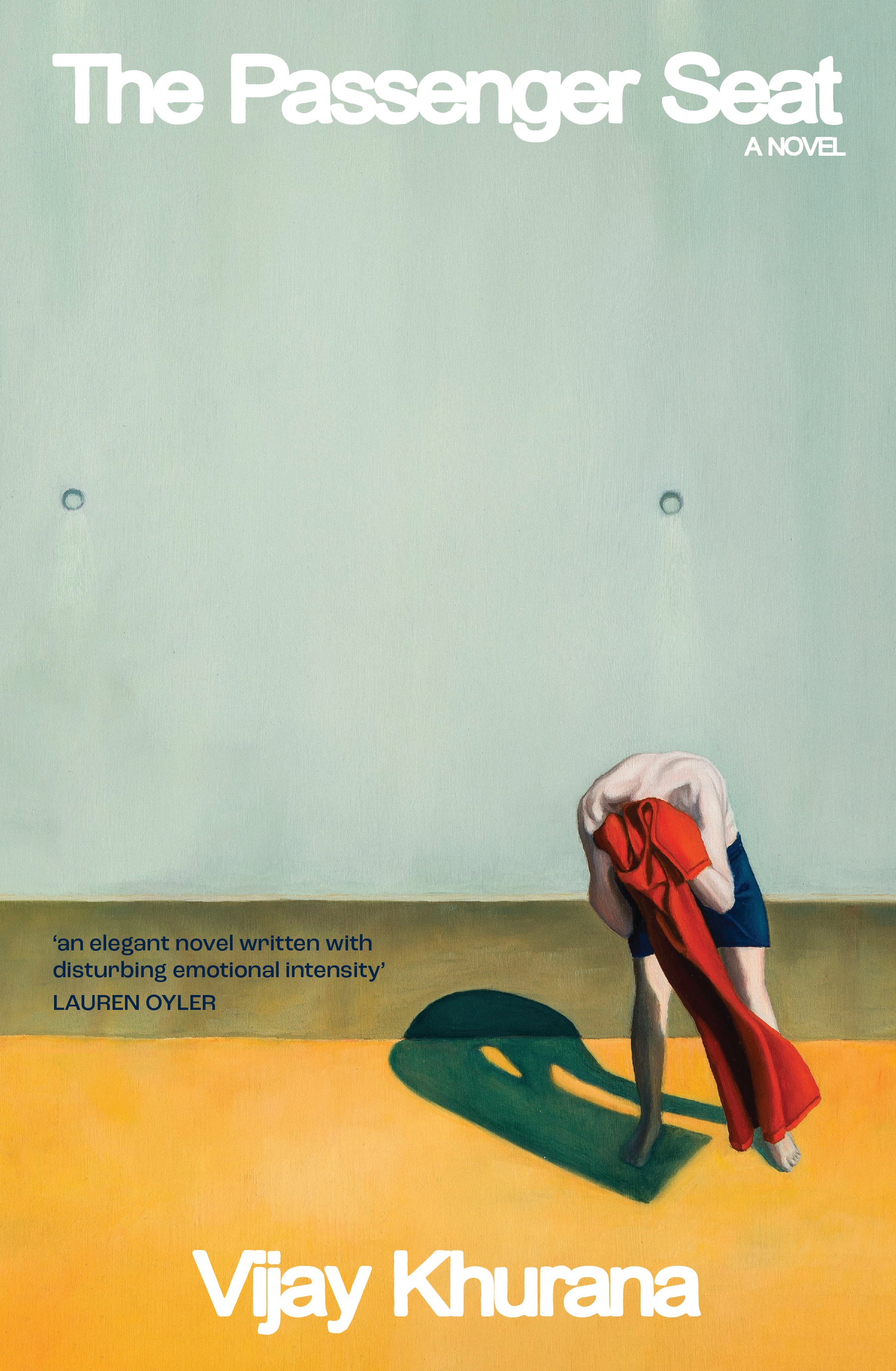
- Free Article: No
- Contents Category: Fiction
- Review Article: Yes
- Article Title: Portioning the inner world
- Article Subtitle: Dollops of suspense and horror
- Online Only: No
- Custom Highlight Text:
Adam lives with his father. Teddy lives with his parents and a sister. Both are children of broken or fragile relationships, about to enter their senior year of high school. Adam’s father appears to have ‘given up’ on life; he has stopped drinking and succumbed to ‘mute anger’. Adam hasn’t seen his mother in six years, since she left the family, and Teddy resents his mother’s extramarital affair. In both cases, the family home is a source of gloomy unease, with fathers who are incapable of dealing with the realities of their lives.
- Featured Image (400px * 250px):

- Alt Tag (Featured Image): Shannon Burns reviews ‘The Passenger Seat’ by Vijay Khurana
- Book 1 Title: The Passenger Seat
- Book 1 Biblio: Ultimo Press, $34.99 pb, 222 pp
- Book 1 Cover Small (400 x 600):

- Book 1 Cover (800 x 1200):

- Book 1 Readings Link: https://www.readings.com.au/product/9781761153792/the-passenger-seat--vijay-khurana--2025--9781761153792#rac:jokjjzr6ly9m
Teddy and Adam are unsure of their friendship. Perhaps they are props for each other’s self-esteem, or there may be a genuine reciprocal fondness. They continually monitor their relative status: one has a car, the other a girlfriend; Teddy relies on Adam for transport, Adam relies on Teddy for companionship. Like many young men, they play video games ‘to make talking easier’.
Adam’s reactions to people and the world around him are troublingly askew. He is the kind of boy who gives people the creeps. He reads material that resentful young men who grew up in the YouTube age apparently read: books that diagnose social malaise, that show you how to win debates and take control of your life. But Adam can’t debate without going too far and alienating his audience, and he can’t present an opinion without transparently echoing his influences. There is nothing attractive about him.
Initially the reader wonders why Teddy – who seems able to pass as a normal, healthy boy – clings to someone like Adam. The answer duly arrives. When Adam talks about ‘failed states, about unsustainable multiculturalism … Teddy feels excited and uneasy in equal measure, like watching somebody do tricks with a knife … All he has to do is cling on for the ride, trusting he will end up somewhere he never expected.’ Despite his shortcomings, ‘there is still something in Adam that makes Teddy want to stick around, just to see what will happen’. Teddy is attracted to the unpredictable peril Adam embodies.
The boys decide to go on a road trip north during their school break, perhaps as far as the Arctic. Teddy hopes they will develop a close bond and become newer, better versions of themselves in the process, but the desire to leave behind the confusions and dissatisfactions of adolescent life outweigh these brighter motivations. Teddy could be spending his summer with his girlfriend, indulging all the pleasures of adolescent love and lust, but his fear of disappointing her, of not passing various tests of erotic adventurousness and competence, has him ‘petrified’. He chooses Adam instead, despite the tenuousness of their bond.
Both boys are tangled up in a battle for dominance, and Adam is so disconnected from the pleasures of life that he needs ugly extremes to feel alive. Typically, male friendship involves a fine balance between competitiveness and sympathetic companionship: there are times and ways to compete, and times and ways to share feeling. Similarly, there are occasions to encourage risk-taking and aggressiveness in a friend, and occasions to challenge and neutralise it. Teddy and Adam have no instinct or appetite for such discerning companionship. Vijay Khurana hints that over-exposure to gaming and other online habits may be partly to blame, but the origins of the boys’ various deficiencies remain enigmatic. They end up doing things they shouldn’t.
Khurana plays with narration in pleasing and subtle ways, moving close then distant from the action, setting the larger scene and noting the various patterns of storytelling and its reception. The public learns about the boys’ misadventures via news updates.
We are told that viewers respond in multiple ways: they passively consume the story, or invest in it via amateur investigation or speculation, or by contributing to the surrounding discourse online. Ignored are the viewers who disregard the reports and turn away from the screen. Readers of fiction enjoy similar possibilities.
Khurana’s narrator tells us things that would be richer in the demonstration. We read of Teddy: ‘From an early age he has been taught that to have something – a toy, a trophy – counts double if your friend has none.’ How is this taught, who does the teaching, and how has Teddy absorbed the lesson? Typically, multiple conclusions are available from life experience. Did Teddy select this lesson over others, or was he instructed more narrowly? Does the lesson say more about the world around Teddy, or his own psychology? Khurana does not oblige us with the kind of details that would make the character, or his circumstances, more vivid.
This feeds into a deeper dissatisfaction. The Passenger Seat’s characters read more like avatars than human beings. We are offered a portion of their inner worlds, but the helping is thin gruel; there is little to chew on, and few flavours or textures to roll around our mouths. This may be part of the author’s intended conception. Perhaps young men who spend most of their time online, playing video games and working out lack the nourishing expansiveness of complex inner lives. Even so, readers are offered little compensation for this impoverishment. Khurana’s prose is decisive, tuneful, and often elegant, but too understated to redeem his characters’ ugliness. There is little to seduce the reader beyond dollops of suspense and horror. Adam and Teddy do not inspire sympathy or curiosity, which softens the impact of their behaviour. It fails to unsettle or linger in the mind. Whether we regard their actions as tragic mistakes or regard them as products of contemporary masculinity – of deficient parenting, stunted socialisation, or pure inbuilt perversion – they slide through our consciousness like unpleasant smells; we register the stench while we have to, then turn our nose toward sweeter fragrances.
The Passenger Seat is pitched as a portrayal of male friendship, but it’s really a portrait of failed or malformed male relationships. Khurana’s characters don’t know how to step outside themselves, to enjoy another’s success or sympathise with their misfortunes. Nor are they capable of delight or enchantment – not even in robust competition. It is as though all basic pleasures have been drained away for them, and we share in that deprivation as we read. If this is Khurana’s intention, it’s a total success.


Comments powered by CComment